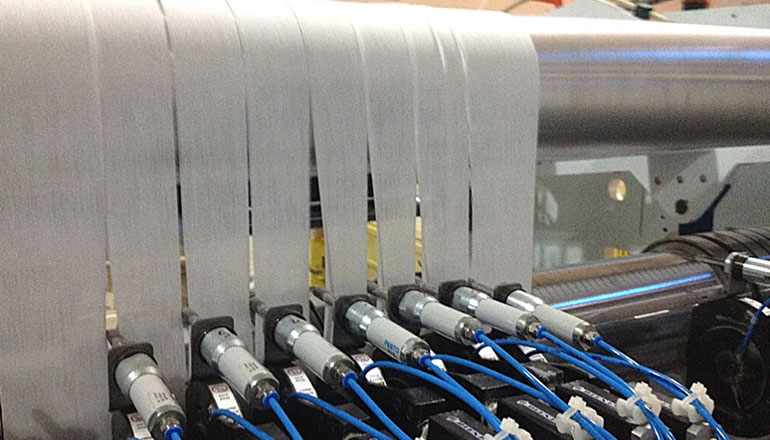
Did you know how diverse and demanding medical consumer goods are? Numerous raw materials made of difficult textiles, plastics and nonwovens are used in the process. The next contribution in Dienes series Close up is therefore dedicated to the exciting and demanding topic of the medical and care products sector.
As a result of the Corona pandemic, medical care products, starting with daily oral hygiene, medical protective masks and extending to silver-containing wound dressings and film dressings for central venous catheters, are an elementary component of modern medicine. Synthetic/natural woven, non-woven, filament, paper fabrics and films exist in numerous variations. As versatile as the composition of the raw materials is, as numerous are the corresponding areas of application and requirement profiles. For example, the wound secretion dressings for plasters are cut to size as a roll pre-product and then made up into the desired final contour. But also the Corona test strips, which have become standard, consist of a correspondingly cut nonwoven fabric.
The range of end products is wide and sometimes can only be found in professional use, such as in doctors’ surgeries and hospitals. In the following you can find a selection of popular products whose raw materials are usually processed using the industrial shear cut or crush cut method:
- plasters (e.g. film dressing rolls)
- absorbent underlays and inserts
- bandages (e.g. support bandages, Pütter bandages)
- wound and skin dressings (e.g. wound protection, wound care)
- test strips
- infection protection equipment (e.g. masks)
- packaging (e.g. folding box of medicines)
- mouth hygiene
A decisive criterion within the medical and care product industry is process safety and risk prevention. It is for a reason that significant effort is put into mitigating potential risks, both to the products and to the end consumers. For example, the use of metallic slitting tools can lead to the unintentional “abrasion” of particles. Since, in general, the entire target group of the industry is particularly in need of protection, such risks must be consistently avoided. This is usually done by using special materials and adapted slitting processes.
The current trend shows that manufacturers are increasingly focusing on prevention instead of reaction. One of the prerequisites for this is data-driven condition as well as future monitoring. As many industries are currently in a state of transformation and the topic of digitalisation is moving into the focus of activities, exciting and innovative developments can be expected in the previously mentioned, sensitive industry sector.
For more information kindly email us at [email protected] or visit our website www.fotedarengineering.com

